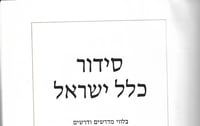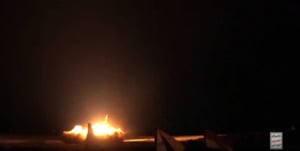
The Supreme Court published its ruling today (Monday) on the amendment to Basic Law: Judiciary, which denied the court the right to strike down certain government decisions based on a "reasonableness" standard. By a majority of 8-7, the court decided this amendment to be too extreme and lacking in sufficient legislative support to be part of the "emerging constitution."
The decision amounts to a reversal of the "constitutional revolution" of former Supreme Court Justice and President Aharon Barak, who declared the Basic Laws of the State of Israel to already be a constitution rather than the building blocks of an eventual constitution.
On the basis of this declaration and a series of rulings from the Mizrahi ruling onward, the Basic Laws, especially Basic Law: Freedom of Occupation and Basic Law: Human Dignity and Freedom, were used to strike down many regular Knesset laws, while the Basic Laws themselves were claimed to be untouchable.
Under the recent government, efforts were made to roll back this judicial claim to constitutional authority, roiling the country in serious political controversy, mass protests, and even threats of refusal to serve in the army. In the end, only a small part of the planned reforms was passed - the aforementioned "reasonableness" amendment, which was struck down today despite its being part of the Basic Law corpus.
Members of the pre-war coalition, who advanced the reform and the reasonableness amendment, generally responded by disapproving of the ruling and especially its timing during a war, when unity is needed.
Justice Minister Yariv Levin, the driving force behind the reform, called the decision "the opposite of the spirit of unity" needed to win the war, saying that "the judges are effectively taking into their hands all the authority...a situation where it is impossible to even pass a Basic Law or make any decision in the Knesset and the government without the consent of the Supreme Justices, takes the voice away from millions of citizens and the basic right to be equal partners in decision making."
Levin ended by saying that "the ruling, which has no parallel in a democratic society, will not weaken our hand. With the war continuing on the different fronts, we will continue to act with restraint and responsibility."
Knesset Chairman MK Amir Ohana, another supporter of the reform, said:
"It is obvious the Supreme Court has no authority to strike down a Basic Law. It is even more obvious that we cannot deal with this so long as the war is raging."
Knesset Constitutional Committee Chairman MK Simcha Rothman, who worked to push through the reform in the Knesset, reposted a tweet on X/Twitter hinting he would respond to the ruling on the popular Channel 14 political show "The Patriots."
















